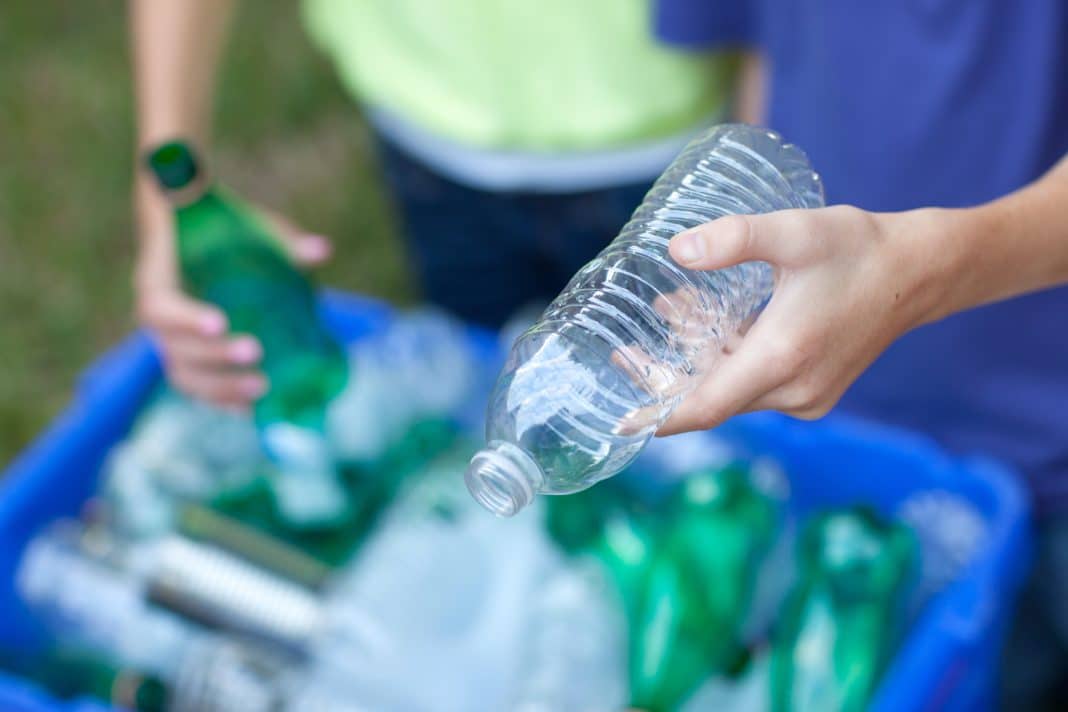Around the country, environmentally conscious Australians are doing their best to reduce waste and care for the planet as they celebrate National Recycling Week, 8-14 November.
“Waste starts with what we buy,” said Chrissie Atkinson, from the Canberra Environment Centre, a community facility that educates people about living sustainably.
“As a community, we should be looking for opportunities to reduce our personal waste whenever possible.”
Ms Atkinson recommended that everyone familiarises themselves with the ACT Government’s Recycle Right Campaign.
“It can help to start by thinking about the people working at the recycling facility, and the machine that sorts the recycling,” Ms Atkinson said.
“Not only do we want to prevent our recycling from winding up in landfill, but we also want to think about the safety of the workers. Who wants to put in effort recycling, only to discover that it has ended up in landfill?”
We can avoid this by following these top recycling tips:
Keep it simple
Only recycle:
- Hard plastic bottles and containers
- Glass bottles and jars
- Steel and aluminium cans
- Paper and cardboard
Keep out soft plastics
Keep out:
- All soft plastics, including bags, plastic wrapping, chip packets, and bread bags
- No degradable nor biodegradable plastic bags – these belong in the landfill bin
“One big problem is that lots of plastic bags are put in recycling,” Ms Atkinson said. “Plastic bags can’t be sorted, so the bags and their contents wind up in landfill.”
Instead, take soft plastic to REDCycle‘s drop-off points at Coles and Woolworths.
Keep out small items
Don’t place anything smaller than a credit card into your recycling bin. This includes:
- Drink bottle lids (including milk bottle lids)
- Bread tags
- Bottle tops
“At the very least, we need to remove the lids from the bottles,” Ms Atkinson said. “If a bottle has a lid on it, it winds up in landfill as it can’t be processed. Imagine how long it would take someone to remove all the lids from our recycling!”
Lids4Kids accept milk, water, and soft drink bottle lids which they repurpose into sustainable recycled plastic products.
Keep it safe
- Keep it safe for our workers and machines … which means nothing hazardous that can harm our workers or anything that can damage the machines. Keep out strapping line, hose, netting, wires, building materials, broken glass, chemicals, and other hazardous materials. Remember to keep out the hazardous waste.
Keep it clean
- Keep it clean by rinsing or wiping out your containers of any excess food, drink, etc.
Keep out
- NO food scraps
- NO nappies
- NO soiled paper or cardboard
- NO general waste
Metal objects are recyclable, but do not go in your ACT recycling bin. They can be taken to a business that collects, recycles, or reuses metal (list on Recyclopaedia), while predominantly metal (80 per cent metal) items can be taken to the Mugga Lane and Mitchell Resource Management Centres.
Keep it loose
- Place your recyclables loose into your recycling bin. Don’t bag or box your recyclables.
“A cleaner waste stream maximises opportunities for recycling,” said Chris Steel, ACT Minister for Transport and City Services.
This week, he encouraged Canberrans to refresh their knowledge on what can and can’t be recycled, and how to reduce household waste altogether.
“It’s quick and easy to test your recycling knowledge with the ACT Government’s National Recycling Week quiz. See how much you know about recycling in the ACT and discover the steps you can take to get your waste and recycling sorted,” Mr Steel said.
The top scoring recycler in the ACT will win a $100 voucher from the Plastic Free Shop, and the runner-up will receive a $50 voucher.
The ACT Government’s online Recyclopaedia is a searchable tool to find out how to responsibly dispose of hundreds of different items. You can also find out more about recycling at the Recycling Discovery Hub.
The Canberra Environment Centre runs events on sustainability topics, covering everything from beekeeping to recycling, and wicking beds to urban foraging. It also manages various grant-funded programs to encourage Canberrans to live more sustainably, as well as participating in events like National Science Week, and Tree Week.
Last week, it hosted an Are You Recycling Right event, facilitated by ACT No Waste. This is an online event held regularly to keep Canberrans up to date on the best ways to recycle. Keep an eye out for more of these next year.
ACT takes everyday action on climate change
At the Territory level, Canberra had a strong track record on recycling, Mr Steel said.
“Our community can be proud of our shared achievements to make Canberra a cleaner and more sustainable city,” Mr Steel said.
A decade ago, in 2010-11, 0.70 tonnes of waste went to landfill per capita in the ACT. In 2020-21, 0.52 tonnes of waste per capita went to landfill.
In July, Canberra banned single-use plastics, such as plastic cutlery, expanded polystyrene containers, and plastic drink stirrers. Many local businesses have also started removing other single-use plastic items.
Canberrans have recycled almost 108 million containers through the container deposit scheme in the last financial year – or more than 255 million containers in total since the scheme started in 2018.
The ACT Government rolled out bulky waste collection services to the entire ACT by mid-year, four years earlier than planned. Almost 6,000 bookings have been made, and 778 tonnes of material collected – of which 319 tonnes were recycled or re-purposed, rather than ending up in landfill.
This year, the green bin collection service collected 24,235 tonnes of green waste from ACT homes –50 per cent more than the previous year.
In the next couple of weeks, the government will roll out its Food Organics and Garden Organics (FOGO) collection pilot in Belconnen; this will be rolled out across Canberra in 2023. Mr Steel said this would see more food scraps diverted from landfill, and reduce greenhouse gas emissions.



